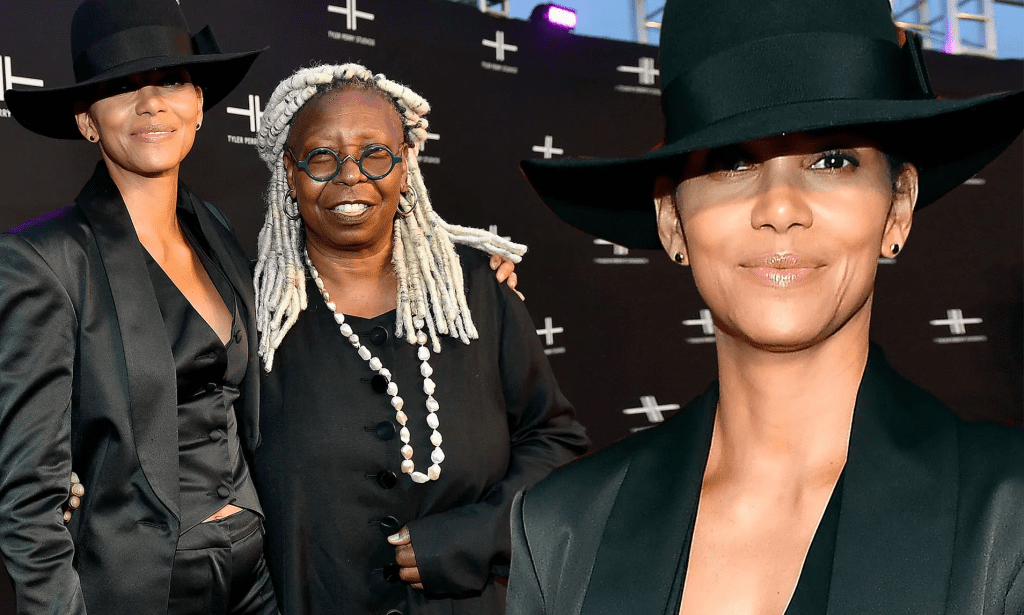Halle Berry Refused to Present an Oscar with Whoopi Goldberg, Reveals Shocking Reason: ‘She’s Not a Nice Person’

Halle Berry Sparks Controversy After Refusing to Present Oscar with Whoopi Goldberg: A Hollywood Clash That Raises Bigger Questions
In the ever-dramatic world of Hollywood, controversies and conflicts often steal the spotlight, capturing public attention and igniting heated debates. Recently, Academy Award-winning actress Halle Berry became the center of a media firestorm after allegedly declining to present an Oscar alongside fellow Hollywood legend Whoopi Goldberg, citing personal concerns and reportedly stating, “She’s not a nice person.” This comment has fueled widespread discussion, raising critical questions about professionalism, interpersonal dynamics, and the expectations placed on public figures, especially successful women in the entertainment industry.

Halle Berry, known for breaking barriers as one of the most prominent women of color in film, has long been admired for her talent and resilience. However, her reported remarks about Goldberg have stirred backlash among fans and critics alike. While some defend Berry’s right to choose her collaborators, others argue that her decision reflects a missed opportunity to celebrate unity and support among influential women in Hollywood.
On the other hand, Whoopi Goldberg, a trailblazing actress and comedian, has built an iconic career with her bold personality and fearless commentary. Her outspoken nature may not align with everyone’s definition of “nice,” but her contributions to film and television are undeniable. Berry’s refusal to appear on stage with Goldberg has sparked speculation about the nature of their relationship and whether personal opinions should influence professional duties, especially on such a globally recognized platform as the Oscars.

Critics argue that this incident highlights a broader issue in Hollywood—the lack of solidarity among powerful women in the industry. With ongoing conversations around diversity and representation, especially for women of color, the expectation for mutual support is higher than ever. Some believe that Berry’s refusal, based on personal sentiments, may unintentionally perpetuate a narrative of division, rather than fostering unity in a competitive and often isolating industry.
The controversial statement that Goldberg is “not a nice person” has also sparked deeper conversations about what kindness truly means in a high-pressure, high-visibility industry like entertainment. Fans and commentators alike have noted that Goldberg’s assertiveness and willingness to challenge norms should not be equated with negativity or hostility. Such labels, critics argue, are subjective and often stem from personal biases rather than objective evaluations of character.

Moreover, the backlash faced by Berry underscores the intense scrutiny public figures endure in the digital age. As social media continues to magnify every action and word, celebrities—especially women—are frequently held to unrelenting standards of behavior. While Berry’s decision may be seen by some as an assertion of personal boundaries, it raises important questions about the balance between personal feelings and professional obligations in the public sphere.
In conclusion, the Halle Berry and Whoopi Goldberg Oscar controversy has ignited a complex and nuanced discussion around personal dynamics, professionalism, and the power of female representation in Hollywood. While Berry has the autonomy to choose her engagements, many believe that her comments and decision may have wider implications for women striving to build a supportive and inclusive environment in the entertainment world. As the conversation unfolds, it serves as a powerful reminder that behind the glamour of Hollywood lies a web of relationships and responsibilities that mirror the broader societal challenges we all face.




